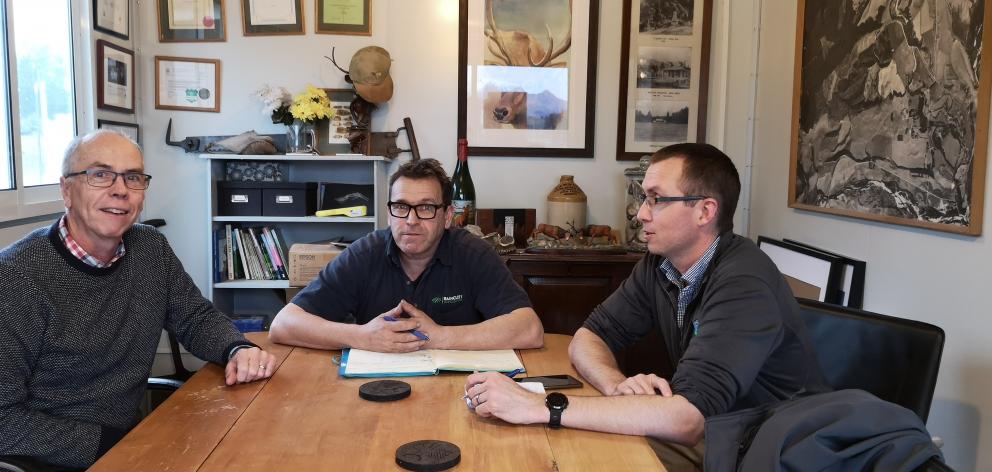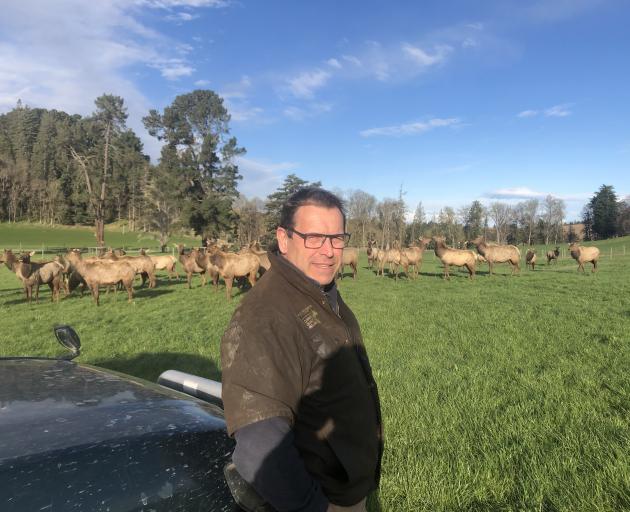
Returns for deer farmers are expected to hit a six-year low this spring as Covid-19 affects the restaurant trade.
Farming deer at Raincliff Station near Pleasant Point, Mr Morgan has been vocal about his disappointment with what is happening in his industry.
"Co-operatives blame Covid-19 for the drop to $5 [per kilogram] back in March, which I thought came prematurely," he said.
"Halfway through lockdown, they put it back up a dollar per kilogram.
"I think it was a time for much more courage and direction rather than a cop-out attitude."
A Mountain River Venison supplier, he felt the shift in prices destroyed a lot of confidence in farmers throughout the industry and in the market.
"I said back in March, maybe because some co-operatives are farmer-owned, they should have gone to their suppliers and said a number of guys have got to wait until August or September to meet the European chilled trade."

Venison often fetched top prices in spring, driven by high demand from Europe during its autumn and winter.
"We do not get true market signals when people are buying store stock," Mr Morgan said.
"If they give $5 per kg live weight for a store animal, the rule of thumb is to double up in the spring market.
"Guys who were expecting to get paid around the $10 mark, the same as last year, thought they would be fine."
More transparency and honesty from co-operatives and discussion from farmers would have been the way to go, he said.
Mr Morgan was in the United States last year promoting New Zealand farm-raised venison, discussing the environment, welfare and "good things" with white tablecloth buyers (high-end buyers).
"No-one expected Covid-19 to come along," he said.
"We want to be able to supply. We do not want to be over-promising and under-delivering.
"As producers, we have worked very hard to build overseas relationships and it has been destroyed overnight.
"I do not want to be all doom and gloom but Covid-19 has really hammered our top-end wholesale market.
"As an industry, we placed our venison at high-end restaurants and hotels, which we thought was the best place to position ourselves."
Mountain River Venison marketing manager John Sadler said Covid-19 had a significant impact on venison markets, and especially sales of premium cuts in the high value foodservice sector.
"We really feel for them [customers]," Mr Sadler said.
"They will be back one day and will once again offer the highest-value market for our product."
In the interim, Mountain River had the challenge of moving more product through other channels and he said it was happening.
"Retail was already a significant market for venison and that is growing in response to attractive pricing."
Mr Sadler met Mr Morgan to explain the market situation in late July and their plan to deal with Covid-19, understanding high stock levels may have contributed to the pressure.
For the future, the industry ought to be more market-focused, which required a longer-term horizon, he said.
Committing to long-term market development programmes in the face of short-term price pressures, both down and up, was the challenge.
"The current high stock/low price dynamic is the result of a confluence of factors that are fundamentally short-term," Mr Sadler said.
"Our experience tells us that farmed venison has many attributes that appeal to consumers."













